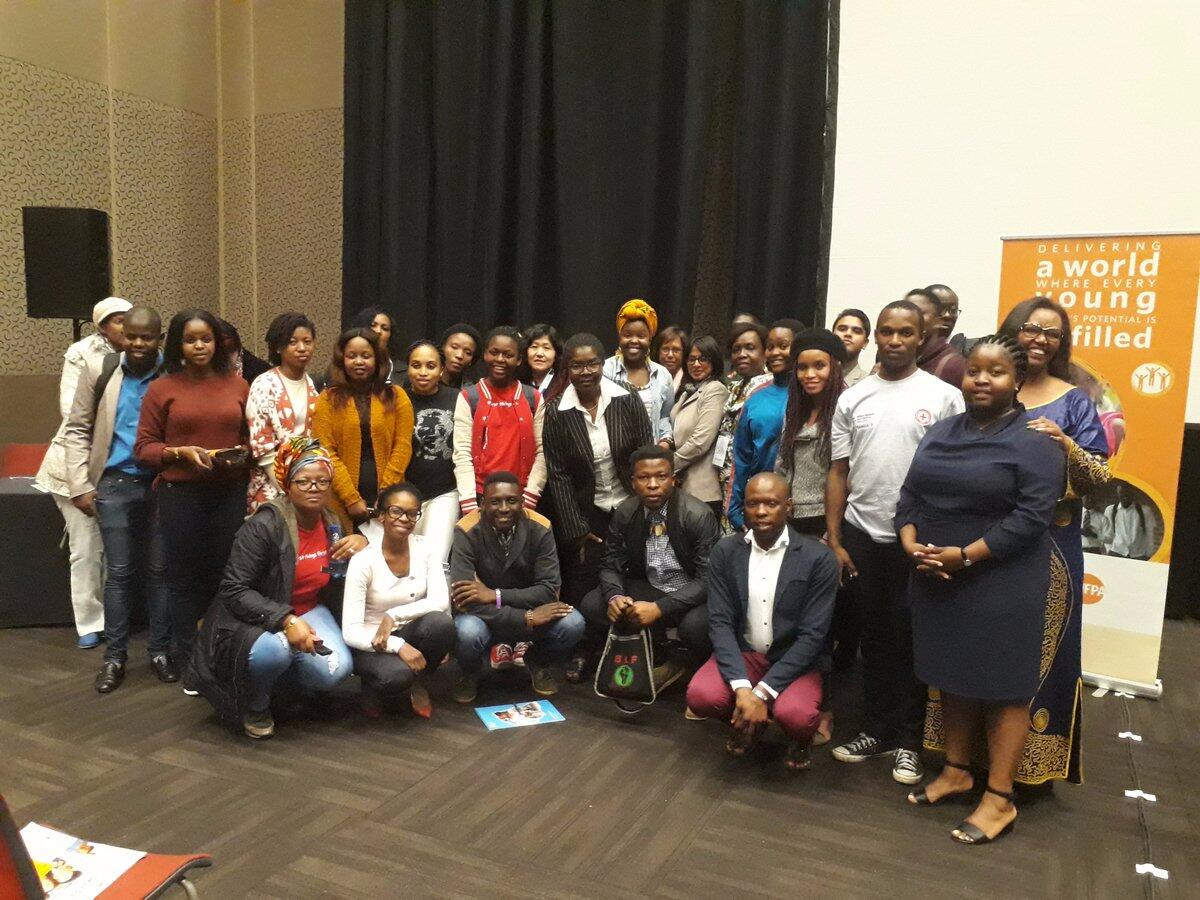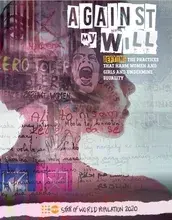On 9th June 2017 the United National Populations Fund (UNFPA) in partnership with the UNWomen in South Africa, hosted a very lively and interactive satellite session “Gender- Based Violence (GBV) as a structural driver of HIV infection at Institutions of Higher Learning” where over 4000 young people gathered in Durban.
The satellite session, coming at a time when South Africa is faced with multiple cases of violence against women, highlighted the need to engage young people at Institutions of Higher Learning (IHL) and key stakeholders to respond to this crisis and look at how to prevent the upsurge. The session was facilitated by Aphiwe Ntlemeza and Sicelo Sibiya, who are members of UNFPA Youth Advisory Panel (YAP). Dynamic speakers from the National Department of Higher education and training (DHET), the Medical Research Council, Sonke Gender Justice, the National Prosecuting Authority, UNFPA and UN Women aligned their theoretical understanding of the linkages between HIV and GBV to real life experiences and evidence-based knowledge of these two intertwined issues. The Deputy Minister of Higher Education, Mr Mduduzi Manana, was a panel member, informed the audience that in their quest to eliminate GBV at Institutions of Higher Learning (IHL) his department is developing a GBV policy and strategy framework that will be implemented at all institutions in South Africa.
This session provided a platform for young people to contribute to the discussion, with proposals on the need for a transformed national response towards prevention and response to HIV and GBV, to ensure local, regional and global actions are effected to end AIDS. The session positioned young people as key partners in preventing HIV and GBV, but also highlighted concrete actions taken to enhance prevention of HIV and GBV in Institutions of Higher Learning.
Opening the session, UN Women Representative, Ms Anne Githuku-Shongwe noted that as development partners we need to move away from old ideas, she stressed “development and programme reform has come and this is due to the youth voice”. She further emphasized that it is worrying to hear many students talking about the different practices that have continued persistently as different types of GBV at Institutions of Higher Learning, such as lecturers who demand sex in exchange for marks. Professor Rachel Jewkes from the Medical Research Council suggested that alcohol abuse, depression and mental health are key drivers of GBV, therefore responses and policies need to take this into account. She echoed the need for a pre-emptive approach to dealing with sexual and gender based violence in campuses, for example conducting threat assessments that will inform institutional policies and instil a culture of protective, supportive and responsive campuses.
Looking at the disparities between the Technical Vocational Education and Training (TVET)/Further Education & Training (FET) colleges; GBV expert and consultant, Ms Lisa Vetten, noted that the country needs to address institutional inequalities in higher education, and align policy and support provided at these campuses with that provided at well-resourced IHL. In response to the issues raised, Dr Ramneek from HEAIDS put forward that has been taken into account to address the inequalities, socio-economic and infrastructural challenges faced by some institutions of higher learning, especially in the peri-urban & rural areas.
Highlighting the need to engage men and boys in the response, Dumisani Rembobo, from Sonke Gender Justice shared some interventions being implemented by the organisation. He pointed out that male involvement is critical as they hold power and authority, which must be addressed as part of the process to empower women. Advocate Omashani Naidoo from the National Prosecuting Authority briefly shared aspects of the Thuthuzela Care Centers as a model with multi-sectoral response that has been implemented in response to rising GBV. Led by the NPA’s Sexual Offences and Community Affairs Unit, in partnership with various departments and donors, Thuthuzela Care Centers are one-stop facilities that provide comprehensive services to victims GBV in the country. They are aimed at reducing secondary victimisation, improving conviction rates and reducing the cycle time for finalisation of cases.
Contributing to the conversation, young people in the audience spoke about the need to deal with social norms that perpetuate the situation today; patriarchy, as it’s a societal issue that is misconstrued; some students mentioned they grew up in a society where respect for the female in society was not visible, but that violence by the male partner was a “norm”..
UNFPA Representative closed the session by recognising the on-going initiatives including policies, but that their implementation was critical to realise change. She encouraged young people to engage and bring out in society different norms that protected the vulnerable ones, including the girl child.



